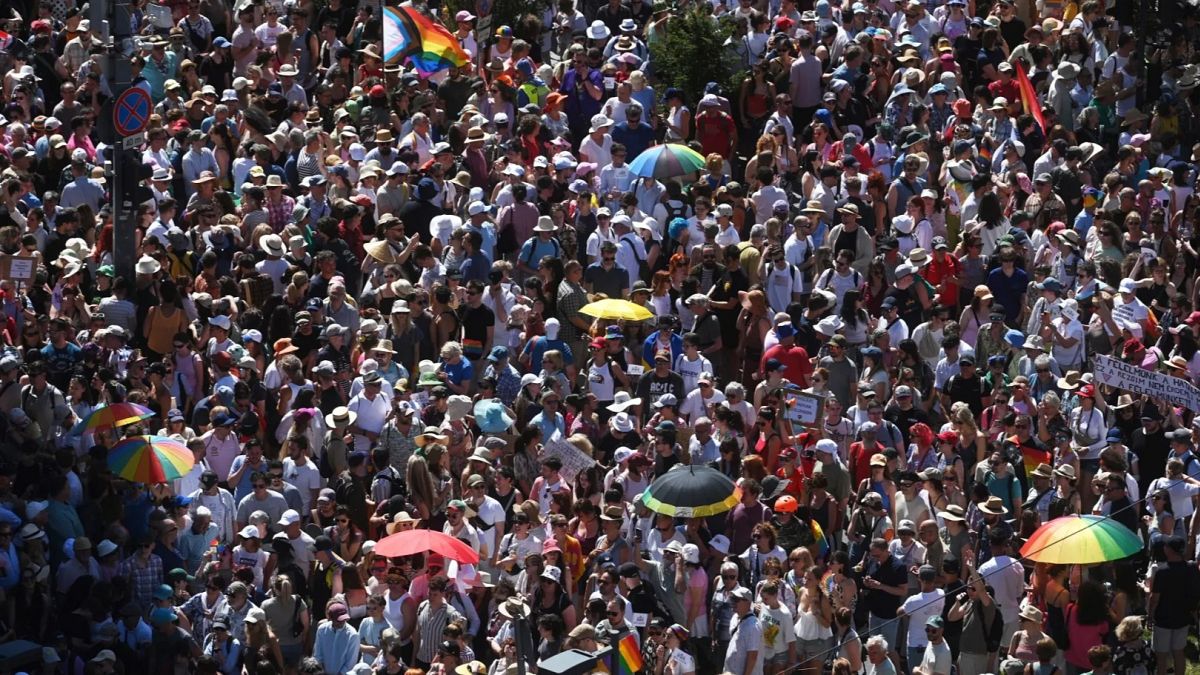

In a world marked by diverse socio-political climates, recent events highlight pivotal changes and ongoing challenges across various regions. From Eastern Europe to Central America, and reaching the Horn of Africa, each story paints a picture of resilience, transformation, and the quest for human rights.
In the heart of Europe, Budapest’s mayor has come under scrutiny from Hungarian authorities for his involvement in a prohibited LGBTQ+ Pride march. The Hungarian government, led by Prime Minister Viktor Orbán, continues to view Pride events as conflicting with children’s rights to moral and spiritual growth. The tension underscores the broader debate within the country regarding civil liberties and government policies. Despite these challenges, the LGBTQ+ community and its supporters persist in advocating for visibility and equal rights.
In a decisive move that underscores its independent policy stance, Slovenia has become the first European Union country to entirely halt weapons trade with Israel. Ljubljana’s decision comes against the backdrop of ongoing humanitarian concerns in Gaza, where the situation remains dire. Despite the lack of a unified EU stance, Slovenia’s action represents a significant shift in how European nations respond to the complexities of the Israeli-Palestinian conflict, reflecting a growing emphasis on humanitarian considerations.
The humanitarian crisis in the Tigray region of Ethiopia unveils grave realities, with a new report documenting severe human rights violations. Systematic acts of violence, including mass rape and sexual torture, have been cataloged by organizations such as Physicians for Human Rights. The report presents detailed evidence gathered from health workers that highlights the tragic impact on women and children, urging the international community to address the impunity that allows such atrocities to persist.
In Central America, changes in El Salvador’s political landscape have sparked concern among democracy advocates. The recent legislative decision to abolish presidential term limits opens the door for President Nayib Bukele to seek indefinite re-election. Critics fear this move mirrors the trajectory toward authoritarianism observed in other regions, potentially compromising the democratic framework of the nation. The reaction has been mixed, yet it signals widespread apprehension about the future of governance in the country.
Lastly, the global community remains attentive to activist efforts, as illustrated by the experience of Chris Smalls, a well-known American labor advocate. Smalls was reportedly attacked by Israeli Defense Forces during a humanitarian mission with the Freedom Flotilla Coalition when their vessel sought to break the blockade on Gaza. The incident drew attention to the ongoing challenges faced by Gaza’s residents and the broader implications of international solidarity movements aiming to provide relief in conflict zones.
These stories together form a mosaic of contemporary global issues, marked by significant shifts in policies, human rights advocacy, and humanitarian crises. As we move forward, understanding these contexts and the underlying human narratives becomes essential in fostering informed dialogue and collective action toward a more equitable world.
Source: {link}
